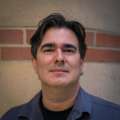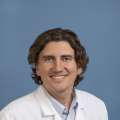Multiple Sclerosis
Patient scheduling:
Blanche Rosas-Savoie, R.N.,
Patient Coordinator:
Ynez Tongson, B.S.,
Contact the multiple sclerosis (MS) program Research Coordinator directly:
Michael J. Montag:
Contact the MS laboratories:
Noriko Ito, BS, MS:
Giving: Your gift to the UCLA Multiple Sclerosis program makes a difference.
Find out more: |
UCLA's MS Program uses a “Bedside to Bench to Bedside” approach.
Clinical observations in MS are investigated in UCLA MS faculty labs leading to novel clinical trials in MS, with 4 such MS clinical trials to date.
Current clinical questions that we are addressing include:
- Why do MS disabilities (walking, vision, cognition) differ so much between MS patients?
- Does aging contribute to the transition from relapsing to progressive MS?
- Why are females more susceptible to MS?
- Why do MS men have worse disability progression than women?
- Why is pregnancy protective in MS?
Focusing on finding answers to these questions by the UCLA MS program using a “Bedside to Bench to Bedside” strategy has been recognized globally through international and national awards as well as consistent funding in grants from the National Institutes of Health for the last 20 years and the Conrad N. Hilton Foundation for the last decade. Philanthropic donors to the UCLA MS Program make all of this possible by providing seed money for early projects and funding to recruit new faculty. Finding neuroprotective treatments to improve disabilities in MS patients is a top priority.
Mission
To improve the lives of patients suffering from multiple sclerosis and other neurodegenerative diseases.
Overview
The Multiple Sclerosis (MS) Program at UCLA aims to improve the lives of MS patients by developing new therapies for MS and providing expert clinical care. This is accomplished through basic science in neuroscience, genetics, immunology, highly advanced neuroimaging, novel therapeutic trials and a full spectrum of clinical care from inpatient to unique outpatient programs. MS patients are seen by dedicated specialists with decades of combined experience and/or fellowship training in the diagnosis and treatment of this difficult disease. UCLA is a designated MS Comprehensive Care Center.
The Marilyn Hilton Multiple Sclerosis Achievement Center at UCLA
As an adjunct service to the diagnostic, treatment and consultative services provided, UCLA also offers access to this unique center that provides rehabilitative, recreational, and education services in a small group setting. The center, a joint effort of the Conrad N. Hilton Foundation, the National Multiple Sclerosis Society, and the UCLA Department of Neurology, offers a broad continuum of care that complements the medical management of MS.
The team
A major strength of the UCLA MS Research Program is that it is part of the UCLA Health System, ranked #1 in Los Angeles and #7 in the United States. Also, collaborations occur with scientists of extraordinary expertise within the UCLA neuroscience community, focusing this tremendous pool of minds on finding a cure for MS. The UCLA campus has six buildings dedicated to neuroscience, a major focus of the university and an extraordinary resource for the UCLA MS Program.
This is who we are:
Director
Rhonda Voskuhl, M.D. is the Director of the UCLA MS Program, the Jack H. Skirball Chair in MS Research, and a Professor in the Dept. of Neurology. She is an internationally recognized expert in MS, focusing on translational work by moving from the bedside (clinical observations) to the bench (research) to the bedside (novel clinical trials). She has led four clinical trials for MS testing novel treatments based on results from research in her lab. She received the Berlin Institute of Health Excellence Award for Sex and Gender Aspects in Health Research for 2018, a global award recognizing excellence in all areas of health research (not limited to MS). She has been selected for the Keynote Kenneth P. Johnson Memorial Lecture for 2019 by Americas Committee for Research and Treatment of MS (ACTRIMS), the leading U.S. and Canadian organization for MS neurologists.
Dr. Voskuhl's patient care focuses on the diagnosis of MS as well as on major changes in MS treatment management. She trains the next generation of MS researchers, including young faculty, postdoctoral fellows, graduate students and undergraduates.
Core MS team
Yuichiro Itoh, PhD, Associate Researcher, Department of Neurology, specialized in genetic analysis and bioinformatics. Dr. Itoh determines gene expression changes in each cell type in the brain in MS patients and the MS model, aiming to discover novel treatments to reverse abnormal gene expression in the brain in MS. His current work focuses on which gene expression changes in the brain are responsible for each MS disability.
Allan Mackenzie-Graham, PhD, Associate Professor, Department of Neurology, is a neuroimaging expert in MS who is a faculty member in the UCLA Brain Mapping Center. He showed halting of brain atrophy in MS women in the estriol clinical trial and in MS men in the testosterone clinical trial. Dr. Mackenzie-Graham was the first to create a map of brain atrophy for each MS disability. He also showed brain atrophy in the most widely used MS model in the world, creating a tool to screen drugs to halt this atrophy.
Callene Momtazee, MD, Associate Professor, Dept. of Neurology, specializes in MS patient care and extends consultative, diagnostic and management services from UCLA to the Olive View-UCLA Medical Center. She has particular interest in neuromyelitis optica (NMO), a variant of MS. She has also been involved in MS clinical trials at UCLA and co-authored a comprehensive review of pregnancy and MS in a major clinical journal.
Kevin Patel, MD, Assistant Professor, Dept. of Neurology, is an expert in MS patient care. He joined the UCLA MS Program recently from Harvard where he had received a three year Postdoctoral Fellowship from the National MS Society. In addition to clinical MS patient care, Dr. Patel does neuroimaging studies in MS patients to determine how neurological pathway connections are disrupted, thereby suggesting a new biomarker for novel treatment trials in MS.
Eric Williamson, MD, Associate Professor, Dept. of Neurology, is an expert in MS patient care. He joined the UCLA MS Program recently from the University of Pennsylvania where he was an Assistant Professor. He extends UCLA MS expertise to the Westwood Veteran’s Administration (VA), through a joint appointment. His expertise is in disease modifying treatment management in MS, including antibodies during treatment that may impact treatment efficacy and toxicity.
Key Collaborators
Michael Sofroniew, MD, PhD, Professor, Department of Neurobiology, UCLA, an expert in neuroscience, glial biology and genetic engineering of molecules in specific cells within the brain. His work reveals the biology of cells in the brain during MS thereby suggesting new treatment targets.
Thomas O'Dell, PhD, Professor, Department of Physiology, UCLA, an expert in synaptic plasticity and electrophysiologic function to assess the cognitive area of the brain. His work reveals mechanisms of cognitive disability in MS, thereby suggesting new treatments to reverse this.
Arthur Arnold, PhD, Professor, Department of Integrative Biology & Physiology, an expert in the effect of sex hormone and sex chromosome effects on the brain. His expertise has been central to understanding sex differences in health and disease.
Clinical staff:
- Mike Montag, B.S., M.S., trial coordinator and neuroimaging technician in MS.
- Ynez Tongson, B.S, patient coordinator,
- Blanche Rosas-Savoie, R.N., patient scheduling and patient care,
Graduate students/Staff Researchers:
- Ashley Loureiro, B.S. neuroprotection and repair of cognitive disability in aging and MS.
- Cassandra Meyer, Ph.D. candidate, neuroimaging in MS and aging.
Researcher Associates:
- Noriko Ito, B.S., M.S., senior lab supervisor, neurodegeneration in aging and MS.
- Timothy Suen, B.S. neuroprotection and repair of visual disability in MS
- Jade Vieira, neurodegeneration in aging and MS.
- Sophia Ban, neurodegeneration in MS.
- Michelle Rivera, neurodegeneration in MS.
- Riddhi Duggal, neurodegeneration in MS.
- Haley Hrncir, neuroimaging in MS.
- Andrew Smith, neuroimaging in MS.
The unique approach: Bedside to Bench to Bedside
Next Steps – Summary of Projects
Our goal is to harness the tremendous neuroscience expertise at UCLA to find a neuroprotective treatment to repair disabilities in MS and extend this approach to other neurodegenerative diseases. Specific areas include:
- Disability specific treatment discovery in MS, focusing on gene expression in brain areas for walking, cognition and vision, optimizing a treatment for each.
- Disability specific brain neuroimaging in MS to be used as sensitive outcomes for disability specific clinical trials.
- Identify X or Y sex chromosome genes that affect neurodegeneration in MS and other neurodegenerative diseases.
- Understand the role of brain aging in the disability worsening in MS and other neurodegenerative diseases.
Investing in the future
Education
The UCLA MS Program is training the next generation of MS faculty. At any given time there are approximately one to three post-doctoral fellows, two to four graduate students, and six to eight undergraduates, who are all being trained in MS. Support for these students for one year can provide time for them to apply for outside funding for three additional years support, thereby amplifying the investment in their future, and in the future of MS.
Clinical MS Patient Care
We have recently hired two additional MS clinicians to permit us to extend our care to more MS patients in the Los Angeles area and beyond and to boost our clinical trials testing new treatments to repair disabilities.
Research
Funds for our projects in their earliest stages transform an idea into a reality.
The Request
The UCLA MS Program owes much of its success to the philanthropic support it has received. Support of highly innovative projects in their infancy requires vision and this support at early, critical moments was central in generating the results needed to capture more traditional funding, exponential expanding the impact of giving. Indeed, without the support of our visionary partners, the award winning accomplishments of the UCLA MS Program would not have been possible.
We request that you partner with us at UCLA in this paradigm shifting approach to find neuroprotective treatments to improve disabilities in MS by giving online today, or for more information, please contact Elizabeth Naito at
Selected Recent Papers
- Itoh [sic], N., Itoh, Tassoni, A., Ren, E., Kaito, M., Ohno, A., Y., Ao, Y., Farkhondeh, V., Johnsonbaugh, H., Burda, J. Sofroniew, M.V., Voskuhl, R.R. Cell-Specific and Region-Specific Transcriptomics in the multiple sclerosis model: Focus on astrocytes. Proceedings of the National Academy of Sciences (PNAS), E302-309, 2018.
- Kim, R., Hoffmann, A., Mangu, D. Kovash, R., Jung, E., Itoh [sic], N., Voskuhl, R. Estrogen Receptor Beta Ligand Acts on CD11c+ Myeloid Cells to Mediate Neuroprotection in Experimental Autoimmune Encephalomyelitis. Brain, 141:132-147, 2018.
- Voskuhl, R. It is time to conduct phase 3 clinical trials of sex hormones in MS – Yes. Multiple Sclerosis Journal (MSJ), 24:1413-1415, 2018.
- Mackenzie-Graham, A., Brook, J., Kurth, F., Itoh, Y., Meyer, C., Montag, M., Wang, H., Elashoff, R., Voskuhl, R. Estriol-mediated neuroprotection in multiple sclerosis localized by voxel-based morphometry. Brain & Behavior, 8: E01086, 2018.
- Voskuhl, R. Momtazee C. Pregnancy: Effect of multiple sclerosis, treatment considerations, and breastfeeding. Neurotherapeutics, 14:974-984, 2017
- Voskuhl, R., Sawalha, A., Itoh, Y. Sex chromosome contributions to sex differences in multiple sclerosis susceptibility and progression. Multiple Sclerosis Journal, 24:22-31, 2017.
- Mackenzie-Graham, A., Kurth, F., Itoh, Y., Wang, H., Montag, M., Elashoff, R., Voskuhl, R. Disability-Specific Atlases of Gray Matter Loss in Relapsing-Remitting Multiple Sclerosis. Journal of the American Medical Association (JAMA) Neurology, 73:944-953, 2016.
- Voskuhl, R., Wang, H., and the Estriol Treatment Trial Study Group. Estriol combined with glatiramer acetate for women with relapsing-remitting MS: A Randomised, Placebo-Controlled, Phase 2 Trial. Lancet Neurology, 15: 35-46, 2016.





